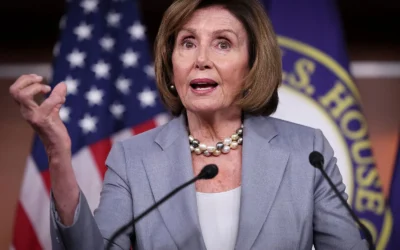Introduction
In recent developments that have sent ripples through social media users and content creators alike, U.S. Commerce Secretary Lutnick made a statement that TikTok, the immensely popular video-sharing app, could go dark in the United States if the Chinese government does not agree to a sale deal that transfers the app’s operations to U.S. control. This declaration highlights the growing tensions between the U.S. and China concerning data security and digital sovereignty.
The Stakes of TikTok
Initially launched in 2016, TikTok has become a cultural phenomenon, especially among younger audiences who use it to create and share short-form videos. Its success has not come without scrutiny, primarily due to its ties to China through its parent company, ByteDance. Concerns about data privacy and national security have led U.S. officials to view TikTok as a potential threat, capable of compromising user data by exposing it to the Chinese government.
Secretary Lutnick’s assertion underscores the scenario where, without a swift resolution regarding ownership of the app, a ban reminiscent of the Trump administration’s attempted shutdown of TikTok in 2020 could become a reality once more.
Implications of a Potential Ban
If TikTok were to go dark in the U.S., the implications would be far-reaching, affecting millions of users and businesses that rely on the platform for marketing and engagement. Content creators who have built their brands on TikTok could see their livelihoods threatened in an instant. Advertisers, too, would lose a crucial channel for reaching younger audiences.
Moreover, the ban would set a concerning precedent for digital free speech and the unilateral power of governments to control access to platforms critical for communication and creativity. Many observers fear that such actions might lead to retaliatory measures against U.S.-based platforms in China, exacerbating tensions in an already fraught relationship between the two powers.
Next Week’s China Trade Talks
Amidst this backdrop, next week’s trade talks between the U.S. and China may hold the key to TikTok’s future in America. As Secretary Lutnick hinted, negotiations could include discussions around the sale of the app. The U.S. government has repeatedly stated that any agreement must ensure that American user data is shielded from unauthorized access. Failures in protecting this data could lead the U.S. to view the app as a national security risk under the existing political climate, highlighting the pivotal role these talks will play.
In Search of Solutions
The ongoing discourse raises pertinent questions about viable solutions that balance national security concerns with the economic and social implications of an outright ban. Options could include a forced sale of TikTok to a U.S. company, similar to the approach taken with the deal between Oracle and Walmart in 2020 that sought to establish a more significant American stake in the app’s operation.
Another approach might involve more stringent regulation, ensuring that TikTok adheres to U.S. data privacy laws without necessitating a complete change in ownership. Such a middle ground would require cooperation from both the U.S. and Chinese governments, a complex negotiation underpinned by differing priorities and perspectives on digital rights.
The Response from Stakeholders
The conversation around TikTok has not only captured the attention of policymakers but has also sparked responses from various stakeholders, including the app’s vast user base, tech industry experts, and digital rights organizations. Many TikTok users have rallied behind hashtags advocating for the platform’s continued existence, expressing their fears about losing a vital outlet for creativity and community.
In contrast, cybersecurity experts have voiced their concerns, highlighting the potential risks associated with an app connected to a state-controlled entity. The conflicting views create a challenging landscape for policymakers tasked with finding an equitable resolution.
Alternative Platforms
In the wake of heightened scrutiny, alternative platforms have begun to emerge as potential substitutes for TikTok users. Apps like Instagram’s Reels and YouTube’s Shorts have attempted to capture TikTok’s audience by offering similar functionalities. However, their ability to provide the same unique culture and community TikTok has fostered remains in question.
Users who migrate to these platforms may face challenges in replicating the engaging experience that TikTok offers, raising the potential for dissatisfaction and further debate about user preferences in the digital landscape.
The Future of Digital Sovereignty
The TikTok saga serves as a microcosm of the broader conversation about digital sovereignty—one that raises significant questions about the future of tech in an increasingly globalized world. As nations grapple with the implications of foreign-owned technology on national security and economic independence, the outcomes of the TikTok negotiations may very well shape the regulatory landscape for the tech industry for years to come.
For many, TikTok represents more than just a social media platform; it is a vibrant community with the power to influence culture, trends, and even political discourse globally. The implications surrounding it echo the pressing need for countries to navigate issues of sovereignty, security, and user agency in today’s digital landscape.
Conclusion
The next week’s trade talks between the U.S. and China will be pivotal in determining the fate of TikTok in America. As the stakes continue to rise, the call for swift and decisive action has never been more critical. Whether through a sale, regulatory changes, or a sudden ban, the decision will impact millions of American users and the broader geopolitical landscape of technology and digital communication. As the discussions unfold, all eyes will be on the negotiating table, hoping for a resolution that protects user data while maintaining access to the vibrant world of TikTok.







